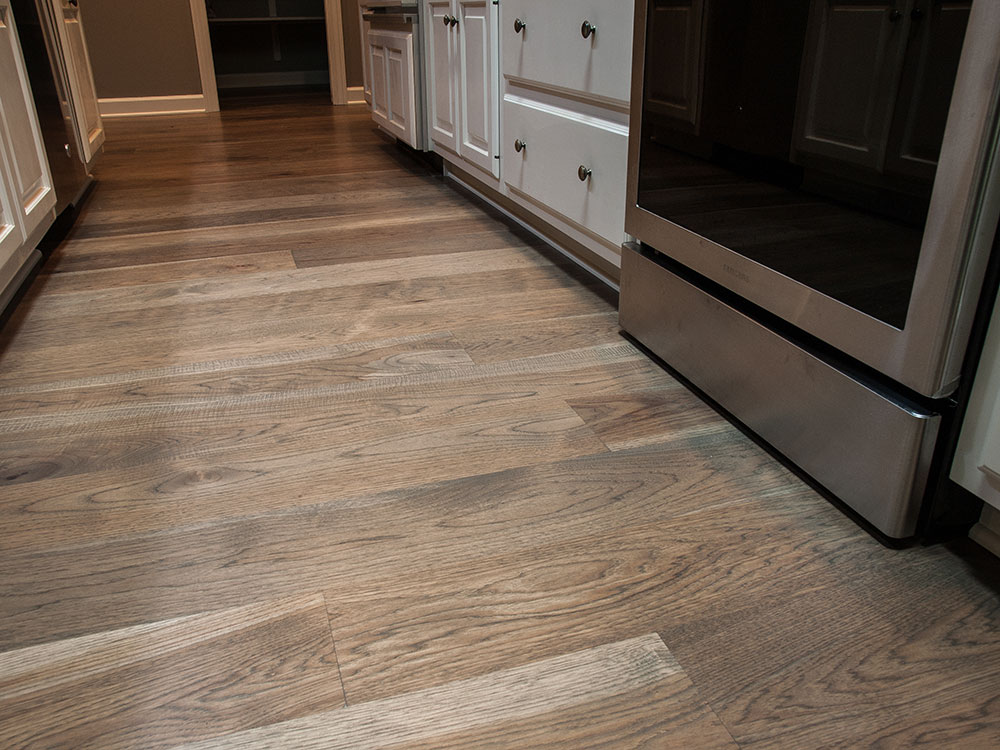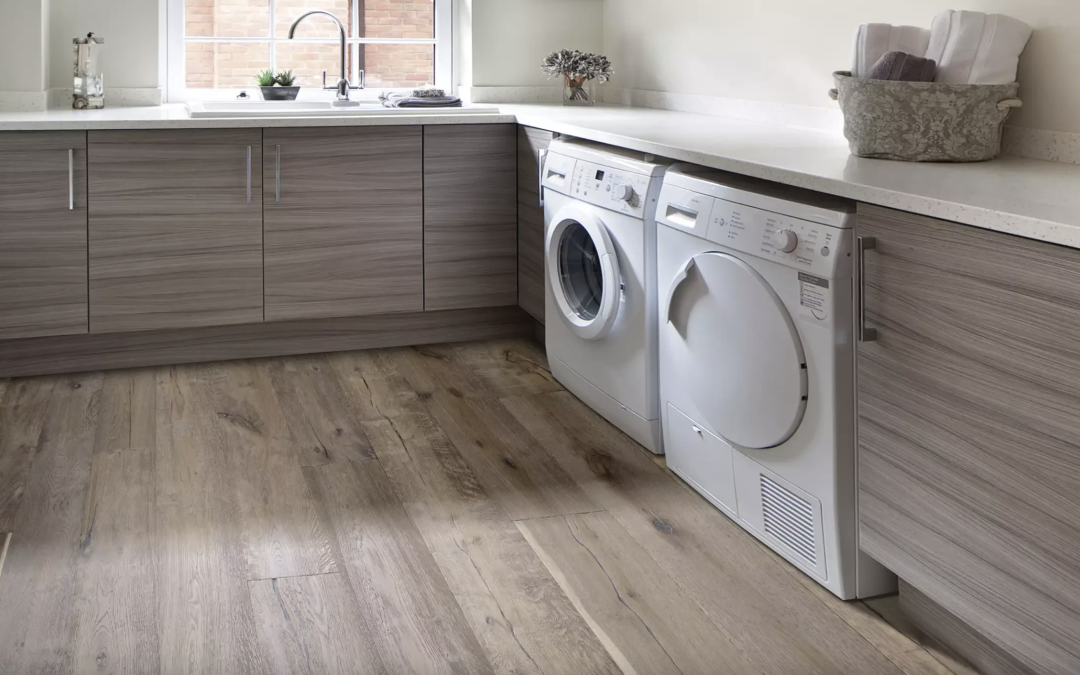Are you thinking about installing engineered wood flooring in Upper East Side in NYC? Engineered hardwood flooring has gained popularity for its huge cost savings and the natural look that warms the home. Engineered wood utilizes a lot less of the tree per plank than solid hardwoods, making it a more environmentally sustainable, natural product. Installing new flooring is a significant investment. Avoid buyer’s remorse by making sure you pick the right flooring option.
Should You Install Engineered Wood Flooring in Upper East Side?
Installation
All floors are installed over a plywood base floor. For engineered floors a subfloor of foam or cork is added on top of plywood or concrete. The engineered wood floor is nailed to the subfloor using the click-and-lock system. The planks have a ridge that is clicked into a neighboring grooved board to create a tight fit. Additionally, engineered floors can float on top of the subfloor using the tongue-and-groove method. Solid wood flooring is only found with a tongue and groove fitting system. It is easier to replace damaged planks of flooring with click fitting. Tongue and groove are available in wider planks of flooring.
Cost
Engineered wood floors in Upper East Side are cheaper than solid hardwood, but more expensive than vinyl, tile, or carpet. Price of materials and labor need to be calculated into cost. Many home experts agree that the floor color should be darker than the walls. The rule generally applies because lighter walls and a dark floor make the room seem larger. Most homeowners prefer a spacious looking interior.
Core
Engineered wood flooring in NYC is produced by pressing layers of wood together and gluing a layer of photographic paper in top or a thin layer of high-quality wood called a veneer. The core can be made from medium density fiberboard (MDF), oriented strand board (OBS), or plywood are wood structural panels made by compressing and gluing pieces of wood together. Even though the boards look like solid wood, they are made of inferior wood. Moreover, low quality layers make the flooring susceptible to weight of heavy objects and temperature fluctuations. To improve the durability, look for more layers and thicker plank.
Fading
Exposure to sunlight can fade engineered wood flooring. Furniture and rugs can make the fading uneven and obvious. To minimize fading close the drapes or blinds at the peak of the day.
 Acclimation
Acclimation
Engineered hardwood floors in Upper East Side need to acclimate to the home’s environment for a week before installation. Acclimation must be in the space where the installation is taking place for the product to adapt to temperature and humidity. If there is too much humidity, the planks will swell during installation and shrink creating gaps when the air dries out.
Cleaning
Engineered hardwood floors is less susceptible to moisture and chemicals than solid wood floors. Puddles of water will damage engineered hardwood floors. Splashes and spills need to be wiped up quickly to prevent damage. Harsh cleaning products will dull or erode the finish. Furthermore, steam cleaning is not recommended, heat and steam will warp the planks and void the warranty. All that is needed is a damp mop with a green cleaner to keep the floors shining.
Moisture
Engineered hardwood floors are vulnerable to moisture and water damage. Kitchens, bathrooms, and basements do not endure the constant humidity and dampness. Some engineered wood flooring can include a protective layer over the veneer to protect against spills and water. Even with air conditioning, the humidity in tropical environments like Florida or New Orleans will shorten the durability and lifespan of engineered wood floors.
Heat
Hot and cold temperatures shrink and swell engineered hardwood flooring. The plywood sub-floor construction is less to warping and swelling. Cupping is a type of damage to the boards where the edges are raised higher than the center of the plank. Crowning describes the opposite, where the center of the floorboard bows up higher than the edges. These both look bad but can usually be resolved without replacing the flooring. It’s important to use the correct underlays, damp-proof-membrane, during installation. Engineered wood flooring tends to be much more stable due to its cross-layered core, but there are many different variations and options out there.
Refinishing
There is a limit to refinishing an Upper East Side engineered wood floor if it has a layer of hardwood on top. The hardwood top must be at least 3 mm thickness and the limit to refinish is twice. Floors with a photographic veneer can not be refinished.
Damage
Engineered hardwood floors in Manhattan are susceptible to scratches and wear over time. Denser boards will be less susceptible to damage and less pronounced dents. For the best type of engineered wood floor, look for those constructed with a plywood core that has more flexibility. The more layers of finish, the more durable your engineered wood floor will be. Besides having a plywood core, you want an engineered wood flooring that has between three and nine layers.
Chemicals
Low quality engineered flooring can give off potentially hazardous chemicals and Volatile Organic Compound (VOC). VOC refers to chemicals within your flooring materials that are released as vapor into the air of your home. Engineered wood flooring cores are made of layers of wood and composites. The core layers are bound together by adhesives. Cheap products made in China can release formaldehyde. Eco-fusion Solid Strand, Home Decorators Collection and Tesoro Engineered Bamboo do not release formaldehyde. On the other hand, solid hardwood flooring is considered the safest and least toxic option as it’s completely natural and free from any toxins.
Sounds
Low quality engineered flooring can sound hollow underfoot. Wood veneers and composites are less dense than solid wood, so they sound reverberant. Floating floors can sound clunky compared to floors that are glued or nailed down. Engineered floors that are denser and thicker will not generate sounds.
Resale value
Not only are engineered hardwood floors easier to clean and maintain, but they can also elevate the look of your home and make rooms appear even larger. Create a space that your family and future owners will feel at ease living in by providing durable, longer lasting, and higher value flooring. On average, installing hardwood floorings can boost the price of your home by as much as 2.5%. Engineered wood flooring looks similar to solid hardwood, potential buyers usually will not be turned off. However, it might not increase the value of a property as hardwood flooring would.
Engineered Wood Flooring in Upper East Side | Contact Hudson Floors
Engineered hardwood flooring is an excellent choice with a wide range of styles. Homeowners and business owners get the same high-quality service at Hudson Flooring. We work with architects, designers, builders, and general contractors. Hudson Flooring is a trusted flooring company since 2008. Hudson Floor Group Inc has been a leading provider of residential & commercial flooring products and flooring services including installation, restoration, maintenance, and design consultation services to a growing number of loyal customers throughout the Manhattan and Northern NJ areas.
Certifications OSHA, NWFA, and FSC.
Schedule a free Consultation https://hudsonfloorgroup.com/service-areas/new-jersey/
Email info@hudsonflooring.com Website https://hudsonfloorgroup.com/about/
Phone 201-644-4400.

